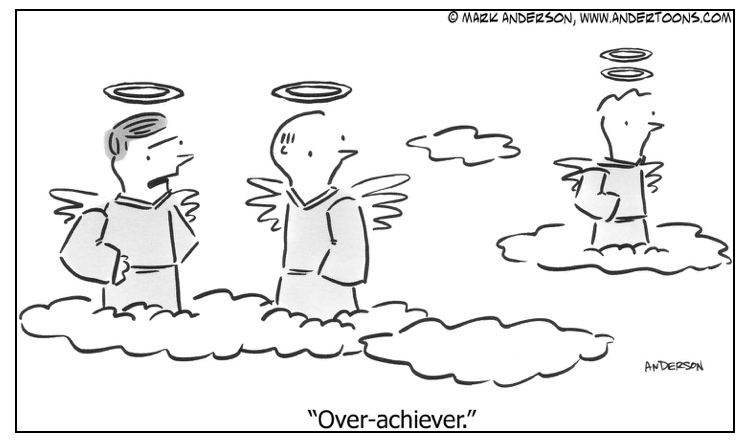I love this video. It’s fun to watch and illustrates a potent truth: small, repetitious actions (I call them habits) can accumulate and create major outcomes.
Habits can be our friend or foe. Good habits help us perform beneficial tasks regularly and efficiently. Bad habits keep us ingrained in undesirable behaviors.
So take an audit of your behaviors and make some changes. I suggest:
List all of your habits, placing them into one of two categories: good or bad.
Good habits might include: personal hygiene, exercise, weekly lunch with friends, reading, writing notes of appreciation, prioritize nightly dinners with family, take stand-up breaks at work every two hours, eat smaller portions, only check email three times a day, regular times of reflection.
Bad habits might include: eating too much, talking too much, not listening, worrying, being pessimistic, being tardy, procrastination.
Many of us will be surprised at how few good habits we have.
When attempting to change your habits, start small and go slow.
Don’t try to overhaul a lifetime of bad habits or instigate a barrage of good ones—in one week. Start small and go slow: work on starting one good habit and canceling one bad habit over the next several months.
Attach your new, good habit to an existing good habit.
The probability of your new habit finding purchase will increase if you do it before or after an existing habit. Build one upon the other. For instance, after you brush and floss your teeth each evening, spend two minutes memorizing important thoughts.
Share your aspirations with a friend and ask her to hold you accountable.
Your success rate will increase if you go public with your intent and ask someone to hold you accountable.
My response to this post
Good habit – Every night before I go to bed I watch an episode of a TV series on my iPad. It helps me relax. I’m currently watching Blue Bloods, a CBS series about a multi-generational family of cops in New York City. My new habit is: before I access the Netflix app. I will open up the Evernote app, where I keep a list of things I’m learning and memorizing, and spend 15 minutes studying.
Bad habit – Sometimes I repeat myself in conversations. I’ll say something and then seconds later, say it again. That’s unnecessary and probably irritating to those I’m talking to. (Those of you with whom I have conversations, hold me accountable.)
[reminder]What are your thoughts about this essay?[/reminder]


 One can’t lead unless he can leverage more than his own capabilities. Scully
One can’t lead unless he can leverage more than his own capabilities. Scully A Pyrrhic victory is one that inflicts such a devastating toll on the victor that it is tantamount to defeat. Someone who wins a Pyrrhic victory has been victorious in some way. However, the heavy toll negates any sense of achievement or profit.
A Pyrrhic victory is one that inflicts such a devastating toll on the victor that it is tantamount to defeat. Someone who wins a Pyrrhic victory has been victorious in some way. However, the heavy toll negates any sense of achievement or profit.